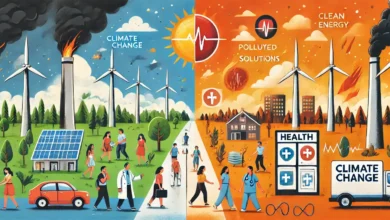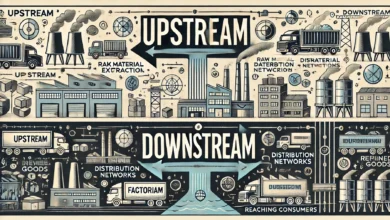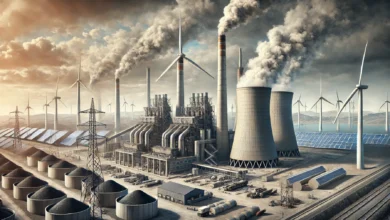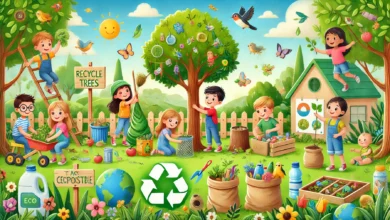Practical Water Conservation Methods You Can Start Today
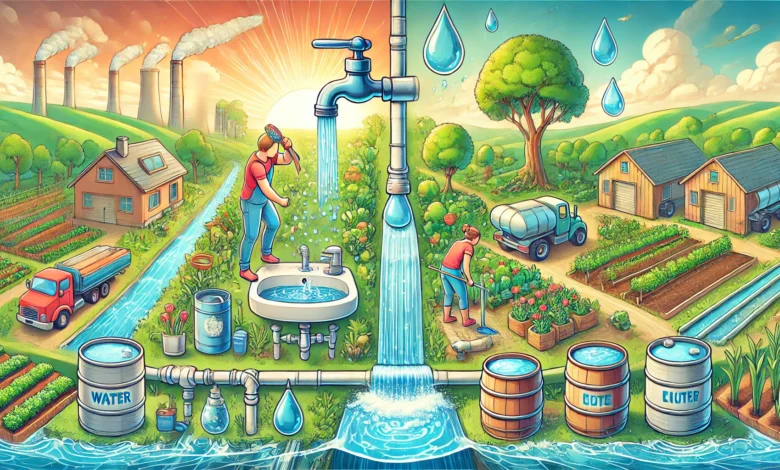
Water’s vital to all life on Earth, but it is one of the most wasted resources in our lives. Climate change exacerbates the threat of drought, and many areas are facing water shortage issues. That’s why now, more than ever, it’s important to learn how to use water wisely! Believe it or not, even small changes in your home can make a substantial difference — to both the planet and your wallet. Here are some very manageable steps you can take today to begin making a real difference.
Contents
- 1 Why Do We Need to Conserve Water?
- 2 How Much Water Are We Wasting Each Day?
- 3 Practical Methods of Using Water Wisely Indoors
- 4 Practical Outdoor Water Conservation Options
- 5 Smart Technologies for Saving Water
- 6 Best Water-Saving Appliances for Homes
- 7 Rainwater Harvesting Systems: Basics and Benefits
- 8 Greywater Reclamation at Home
- 9 Community Level Miscellaneous Water Conservation Strategies
- 10 Simple Daily Actions That Equal Significant Impact
- 11 Frequently Asked Questions (FAQ)
Why Do We Need to Conserve Water?
Many of us think of water as an everlasting and infinite resource; however, only about 1% of the water on Earth is fresh water that is available for humans to consume. The rest of that water is either frozen in glaciers, in polar ice caps, or too salty to consume, which leaves less than 1% of the planet’s water we have access to. Conserving water decreases the amount of energy used to treat and distribute water to homes and businesses, ultimately reducing carbon dioxide emissions and combating climate change.
How Much Water Are We Wasting Each Day?
Every American’s average water use is about 300 gallons of water every day. Of that 300 gallons, it is estimated that approximately 30% is wasted. This wastage occurs because of leaks, ineffective appliances, and water-wasting habits. A single dripping faucet could waste over 3,000 gallons of water each year, which is enough water to take more than 180 showers!
Practical Methods of Using Water Wisely Indoors
- Fix your leaks as soon as possible, including leaks in faucets, toilets, and showerheads.
- Shut off the tap, for example, when brushing teeth or washing dishes, don’t leave the faucet running.
- Installs low-flow fixtures, like adding aerators to your faucets and using low-flow showerheads; they both save a few gallons each use.
- Only run full loads: Only run your dishwasher or washer when you have a full load to save water and energy.
Practical Outdoor Water Conservation Options
- Water your garden wisely: Water in the early morning or late evening to minimize evaporation.
- Use drought-resistant plants: Native landscaping reduces the need for heavy watering.
- Mulch your garden: Mulch slows down moisture lost from soil and keeps roots cool.
- Evaluate irrigation systems: Check to make sure the sprinklers are watering the plants instead of sidewalks.
Smart Technologies for Saving Water
Smart irrigation controllers take into account actual weather data to develop irrigation schedules, so they will not allow sprinklers to run when it rains. Leak detectors give you instant alerts when leaks happen, so that you can address leaks quickly saving potentially thousands of gallons every year. If you are interested in other energy or eco-efficiency options, then you may find it interesting to also read about Ways to Power Your Home with Renewable Energy.
Best Water-Saving Appliances for Homes
- Energy Star dishwashers: Use less than 5 gallons of water during each cycle, compared to 10+ gallons for older dishwashers.
- High-efficiency washers: Use up to 50% less water per load.
- Dual-flush toilets: Allow users to choose every time they flush and save water consumption for every flush.
Rainwater Harvesting Systems: Basics and Benefits
Rainwater harvesting is the process of capturing and storing rainwater from a rooftop for intended use. Depending on the rainwater harvesting system, the rainwater can then be used for your garden, flushing your toilets, or doing laundry. A basic rain barrel system has the potential to capture hundreds of gallons during a rainy season, allowing you to conserve and be less reliant on a municipal supply of water.
Greywater Reclamation at Home
Greywater generally refers to gently used water from sinks, showers, and washing machines. Systems can be designed to redirect greywater and send that water to water a garden, or, to flush a toilet, where it has the potential to reduced household water consumption considerably. Simple and cost-effective greywater kits are also available for do-it-yourselfers who’d like to make a reasonably large positive impact.
Community Level Miscellaneous Water Conservation Strategies
In addition to individual behaviors, community efforts can achieve significant water savings. Participating in local clean-ups, advocating for municipally regulated jurisdictions that are water-smart, and supporting sustainable agriculture programs, all contribute to the savings of a precious resource. Global thinking, local action; your efforts compound when there are contributions from neighbourhoods to communities.
Simple Daily Actions That Equal Significant Impact
It does matter. In other words, whether you are turning off the tap while soaping your hands, timing your shower to 5 minutes, or thinking before using 30 gallons of water to rinse and wash a car, all of these actions, or increased mindful behaviors save thousands of gallons of water in a year. The key is to be consistent. Over the course of the year, small, thoughtful changes snowball into big positive environmental benefits.
Frequently Asked Questions (FAQ)
How much water can I save by fixing a leaky faucet?
By fixing one leaking faucet it is conceivable, you could save over 3,000 gallons of water per year.
Is rainwater safe to use at home?
Rainwater is safe to use for non-drinking purposes; examples include irrigation, flushing toilets, and washing vehicles. However, it must be filtered and treated for other consumption, like drinking.
How is the easiest way to save water in an indoor environment?
The easiest way to save water in an indoor environment is to install either low-flow faucets with aerators or fix obvious leaks.
Does landscaping really use that much water?
Absolutely. Typically, outdoor landscaping accounts for just under 30% of household water consumption, especially in warmer climates.
Can smart home technology actually save water?
Definitely. Smart irrigation systems can lower your outdoor water costs by adopting real-time monitoring and advanced algorithms to manage the watering based on the local weather conditions, resulting in approximately 30% water savings.
